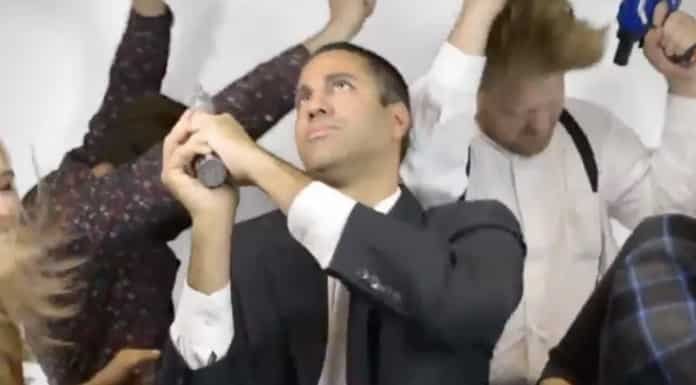3 Count: Harlem Shook
Couldn't come up with an original Ajit Pai joke, too many made already...
 Have any suggestions for the 3 Count? Let me know via Twitter @plagiarismtoday.
Have any suggestions for the 3 Count? Let me know via Twitter @plagiarismtoday.
1: YouTube briefly took down FCC chairman Ajit Pai
First off today, Sara Jeong at The Verge reports that a video featuring Federal Communications Commission (FCC) chairman Ajit Pai doing the Harlem Shake was removed from YouTube following a copyright complaint by the song’s creator and label.
Pai drew controversy this week for successfully pushing to have the FCC repeal its protections for net neutrality. As part of that push, Pai worked with The Daily Caller, a conservative news site, to create a video showing things that you can still do on the internet without net neutrality. Among the things he demoed was doing the Harlem Shake. However, the record label of the song behind the meme, Mad Decent, filed a copyright notice against the video, getting it removed.
The Daily Caller was able to get the video restored seven hours later but the takedown sparked controversy about the validity of the removal. Pai and The Daily Caller say that the takedown was improper because the video was a parody and the use a fair usue. However, others say that the takedown is more ambiguous and that the Harlem Shake‘s meme status doesn’t change it’s copyright status. Nonetheless, the video is online as of this writing.
2: Steam Purged Of Pepe Emoticons After Creator Files Copyright Claim
Next up today, Nathan Grayson at Kotaku reports that Matt Furie, the creator of the character Pepe the Frog, has filed a copyright notice with Valve, makers of the Steam video game platform, that has resulted in the removal of icons and emoticons featuring the character on the platform.
Furie created Pepe as part of a comic series he was working on. However, in 2008 the character become a meme on 4chan and eventually became a symbol of white supremacy and white nationalism, much to Furie’s horror. He has since attempted to use his copyright in the character to both kill Pepe off canonically and to seek the character’s removal whenever from various sites and projects.
As a result of the most recent move against games and emoticons on Steam, many Steam achievements no longer display the artwork of Pepe, instead featuring a notice that it was removed due to a DMCA notice. The sweep, however, hasn’t been perfect as at least some games have been unaffected by the copyright notice and user-uploaded images of Pepe also appear to be online.
3: Copyright Royalty Board Raises Rate for SiriusXM, Lowers It for Music Choice
Finally today, Ed Christman at Billboard reports that the Copyright Royalty Board (CRB) has hit SiriusXM with a significant increase in royalties will have to pay for sound recordings it streams over its service.
Previously SiriusXM was paying 11 percent of its revenue but, starting in 2018, that amount will jump to 15.5 percent. According to SoundExchange, a performance rights organization that collects royalties for copyright owners, the move is appropriate because SiriusXM had been paying a below-market rate and had been extremely profitable because of it.
However, it wasn’t all good news for rights holders. The CRB also announced that it will reduce the rate of pre-existing subscription services, such as MUZAK and Music Choice, from 8.5 percent down to 7.5 percent. All parties in both cases have 15 days to ask for a rehearing and, after the rehearings have concluded, the Register of Copyright has 60 days to review the determinations for any legal errors.
Suggestions
That’s it for the three count today. We will be back tomorrow with three more copyright links. If you have a link that you want to suggest a link for the column or have any proposals to make it better. Feel free to leave a comment or send me an email. I hope to hear from you.
The 3 Count Logo was created by Justin Goff and is licensed under a Creative Commons Attribution License.
Want to Reuse or Republish this Content?
If you want to feature this article in your site, classroom or elsewhere, just let us know! We usually grant permission within 24 hours.
